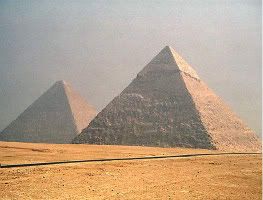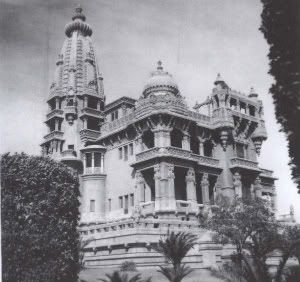This post might not be related to the teaching of Arabic directly, but it is within the spirit of the blog.
Learning the Arabic language, or finding out how it is used to express the way people think, should also be of interest to readers of this blog.
In an article published in the New Yorker (1/18/2010), Claudia Roth Pierpont wrote about the translation of Contemporary Arabic Novels. She said, “We need to learn about the ways that people think and work and suffer and fall in love and make enemies and sometimes make revolutions….”
Contemporary Arabic novels will indeed teach us about contemporary Arab people, whether we read them in Arabic or in translation.
The author offers a detailed exposition of contemporary literary Arabic works, of their authors, and of the names of their translators. It is indeed worth reading. And, it would be of interest to any teacher of contemporary Arabic literature, of comparative literature, and definitely to teachers of Advanced Arabic.
Actually, the author’s following statement prompted me to write this post. She said “Arabic novels, while not yet lining the shelves of the local bookstores, have been increasingly available in English translations, offering a marvelous array of answers to question we did not know we wanted to ask.”
From my perspective as a linguist, I think that students of advanced Arabic language should read in abundance modern novels. Possibly, they will in the future become translators of further novels. There are still many other interesting novels to be translated.





It is a good thing that a major news and opinion outlet is highlighting Arabic literature in translation. And it is a very good thing that the author actually mentions the names of some of the translators, who are, after all, co-authors with the writers of the source language texts. She does get some things horribly wrong, but she is to be applauded for bringing the enterprise to the attention of a Western readership.
ReplyDeleteWhere I think the discussion of the translation of Arabic novels goes wrong is that the works are often depicted (and so depicted in the New Yorker piece)as airing the pressing issues of Arab society to a wider Western audience. The problem with that sort of reasoning is that Arab novelists to not enjoy a wide readership within the Arab world itself. Various estimates place the sales figures of novels between a few hundred and a few thousand volumes sold. Some highly visibile writers like Alaa El Aswany and Khaled El Khamisi - whose book Taxi is not technically a novel - have sold in the tens of thousands. What is more, very often the issues addressed in novels are not in the mainstream of Arab discourse, residing instead on the peripharies of the discussion. Things like sexual orientation (or sexual activity at all) are not widely discussed in open discourse. I suspect that the popularity of those novels famous for airing such issues reflects Western preoccupations and not the vital issues animating Arab discourse within Arab societies. True, some novels address corruption, for instance, or war, and those are indeed issues discussed openly. But generally, and clearly given the sales figures, it seems that novels are largely written by and for a small elite of literati.
A truer picture of the issues animating discussion in Arab societies could be gained from reading and translating Arab essayists. I maintain that the essay is a much more characteristically Arab literary form than is the novel. Unfortunately, if Arabic novelists do not sell well in the West, Arabic esssayists, if they are even translated (and they sometimes are) hardly sell at all. But compare the sales figures for novelists within the Arab world with those for the overall best selling essayist Mohamed Hassanein Heikal (some of whose works have been translated into English and other European languages). Any book by Heikal regularly sells upwards of fifty thousand. What is more, essayists are often regular contributors to the opinion pages of Arabic newspapers, and as such, their views are read by more people than those reading (or at least buying) novels. Finally, they, and not too many novelists, make regular appearances on television, enabling their views and their discussions of issues to be even more widely disseminated.
Translating novels is a worthwhile enterprise. But we should not allow ourselves to be fooled into thinking, as the author of the New Yorker piece appears to do, that novels offer a view of the characteristic issues animating Arab societies. The translation of essays - also a worthwhile undertaking - would provide a much more realistic view of those.
حاليا بالمكتبات “رواية بليماوث كورتي “.
ReplyDeleteاول رواية مصرية تناقش الاضهاد و المؤامرة الامريكية ضد العرب و المسلمين .. حيث يتناول الكاتب قلعة ” بليماوث كورتي ” و هي اشهر السجون الامريكية و التي تبعد نحو 40 ميل من ولاية بوسطن و معروف بانه يحوي عددا كبيرا من العرب بداخله لمجرد انهم عرب …يغوص الكاتب في ممرات هذا السجن الذي يحمل في طياته مشاعر و مآسي كما يخرج بك من اسواره الى ولاية بوسطن لتصطدم بفساد السلطة فتقضي ساعتين من التشويق و المتعة و الاثارة و الحسرة على حال العرب
جروب الرواية بالفيس بوك
http://www.facebook.com/group.php?gid=120543081328556&v=info
This comment has been removed by the author.
ReplyDeleteWould you please send me the author's name and the date of publication
ReplyDeleteمؤلف الرواية محمد كامل
ReplyDeletereallyfreedom@yahoo.com
مؤلف رواية بليماوث كورتي هو محمد كامل. شكرا
ReplyDelete